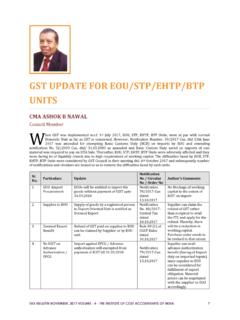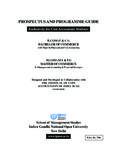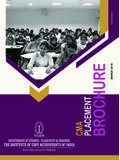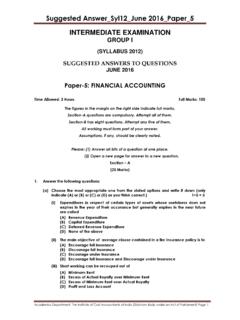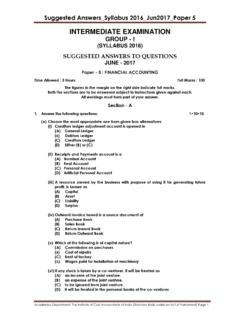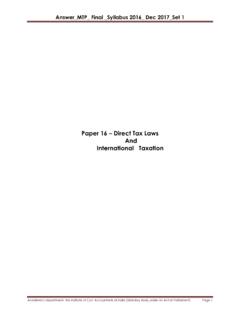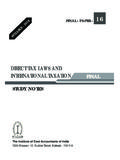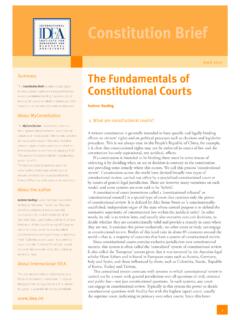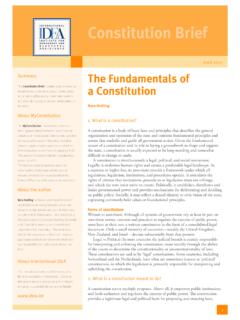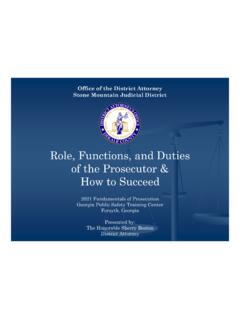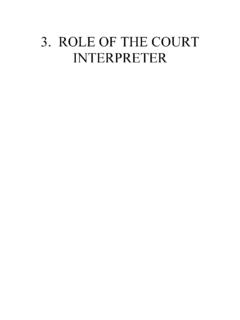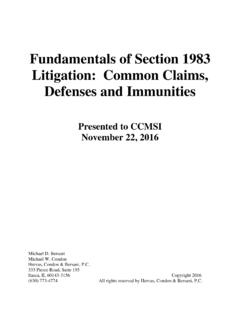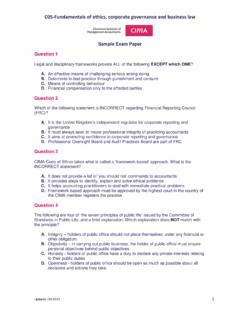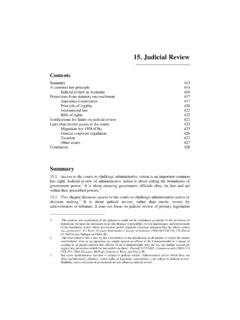Transcription of FUNDAMENTALS OF LAWS AND ETHICS
1 FOUNDATIONSTUDY NOTESFOUNDATION : PAPER -3 FUNDAMENTALS OF LAWS AND ETHICSThe Institute of Cost Accountants of IndiaCMA Bhawan, 12, Sudder Street, Kolkata - 700 016 SYLLABUS - 2016 Published by :Directorate of StudiesThe Institute of Cost Accountants of India (ICAI)CMA Bhawan, 12, Sudder Street, Kolkata - 700 of these Study Notes is reserved by the Institute of Cost Accountants of India and prior permission from the Institute is necessary for reproduction of the whole or any part at :M/s. SAP Print Solutions Pvt.
2 , Lakshmi Industrial Estate S. N. Path, Lower Parel (W)Mumbai - 400 013, MaharashtraFirst Edition : August 2016 Reprint : April 2017 Reprint : March 2018 Edition : August 2019 Reprint : March 2020 Reprint : October 2020 Reprint : January 2021 Reprint : March 2021 Reprint : August 2021 Syllabus - 2016 PAPER 3: FUNDAMENTALS OF LAWS AND ETHICS (FLE)Syllabus StructureAFundamentals of Commercial Laws70%BFundamentals of Ethics30%B30%ASSESSMENT STRATEGYT here will be an examination on this gain basic knowledge in Laws and ETHICS to understand the concepts of regulatory compliance, requirements and desired ETHICS expected from AimsThe syllabus aims to test the student s ability to.
3 Acquire adequate knowledge of the basic concepts of laws Understand the basic knowledge of ETHICS including allied regulatory compliance and requirementsSkill sets requiredLevel A: Requiring the skill levels of knowledge and comprehensionNote: Subjects related to applicable statutes shall be read with amendments made from time to A : FUNDAMENTALS of Commercial Contract Act, 187240% of Goods Act, 193020%3. Negotiable Instruments Act,188110%Section B : FUNDAMENTALS of and Business30%SECTION A: FUNDAMENTALS OF COMMERCIAL LAWS [70 MARKS] Contract Act, 1872(a) Essential elements of a contract, offer and acceptance(b) Void and voidable agreements(c) Consideration, legality of object and consideration(d) Capacity of Parties, free consent(e) Quasi Contracts, Contingent Contracts(f) Performance of Contracts(g) Discharge of Contracts(h) Breach of Contract and Remedies for Breach of of Goods Act, 1930(a) Definition(b) Transfer of ownership(c) Conditions and WarrantiesA70%B30%70%30% (d)
4 Performance of the Contract of Sale (e) Rights of Unpaid Vendor (f) Auction Sales3. Negotiable Instruments Act,1881 (a) Negotiable Instruments Characteristics of Negotiable Instruments (b) Definitions of Promissory Note, Bill of Exchange and Cheque (c) Differences between Promissory Note, Bill of exchange and Cheque (d) Crossing Meaning, Definition and Types of CrossingSECTION B: FUNDAMENTALS OF ETHICS [30 MARKS]4. ETHICS and Business (a) ETHICS Meaning, Importance (b) The Seven Principles of Public Life Selflessness, Integrity, Objectivity, Accountability, Openness, Honesty and Leadership (c) The relationship between ETHICS and Law (d) ETHICS in BusinessSECTION A FUNDAMENTALS OF COMMERCIAL LAWSS tudy Note 1.
5 Indian Contract Act, Essential elements of a contract, offer and acceptance Void and voidable agreements Consideration, legality of object and consideration Capacity of Parties, Free consent Quasi Contracts, Contingent Contracts Performance of Contracts Discharge of contracts Breach of Contract and Remedies for Breach of Contract 38 Study Note 2 : Sale of Goods Act, Definition Transfer of ownership Conditions and Warranties Performance of the Contract of Sale Rights of Unpaid Vendor Auction Sales 106 Study Note 3.
6 Negotiable Instruments Act, Negotiable Instruments Characteristics of Negotiable Instruments Definition of Promissory Note, Bill of Exchange and Cheque 126 Differences between Promissory Note, Bill of exchange and Cheque Crossing Meaning, Definition and Types of Crossing 130 ContentsSECTION B FUNDAMENTALS OF ETHICSS tudy Note 4 : ETHICS and ETHICS Meaning, Importance The Seven Principles of Public Life - Selflessness, Integrity, Objectivity, Accountability, Openness, Honesty and Leadership.
7 145 The relationship between ETHICS and Law ETHICS in Business 146 Section AFundamentals of Commercial Laws(Syllabus - 2016)THE INSTITUTE OF COST ACCOUNTANTS OF INDIA 1 The Indian Contract Act, 1872 This Study Note Essential Elements of a contract, offer and Void and Voidable Agreements Consideration, Legality of object and Capacity of Parties, Free Quasi Contracts, Contingent Performance of Discharge of Breach of Contract and Remedies for Breach of ContractStudy Note - 1 THE INDIAN CONTRACT ACT.
8 1872 Law revolves around rights and India people have three types of rights: (a) Human Rights.(b) constitutional Rights.(c) Contractual are explained below in brief -(a) Human Rights: There is no law. United Nations have adopted an Universal Declaration of Human Rights which has been adopted by member countries including India. We have National Human Rights Commission and State Human Rights Commission. Human is above common law. (b) constitutional Rights: This is available to all citizens as per constitution.
9 Basic rights are called fundamental rights and if Govt. or Govt. organisation violates any right, remedy is available to the citizen by making writ petition to High Court. (c) Contractual Rights: These are rights and obligations created voluntarily between parties by making contracts. ESSENTIAL ELEMENTS OF A CONTRACT, OFFER AND ACCEPTANCE Introduction:Before enactment of Indian Contract Act, 1872, the courts in India used to apply English Common laws as suited to Indian conditions, customs and usages.
10 Some difficulties were noticed in using English Common laws. Accordingly later the courts started deciding cases based on Hindu Personal laws and Muslim personal laws. But the same were still not found fit to address the business complexities. Accordingly separate Indian Contract Act, 1872 was enacted. This Act is based on English Common law, which is to a large extent made up of judicial law relating to contracts is contained in the Indian Contract Act, 1872. The Act as originally enacted is divided into four parts: FUNDAMENTALS of Laws and Ethics2 THE INSTITUTE OF COST ACCOUNTANTS OF INDIA1.

